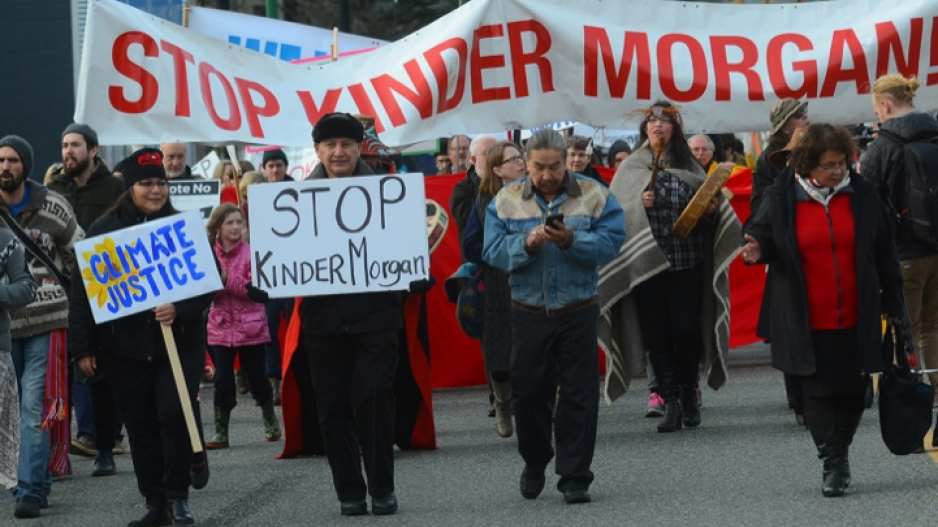An environmental group that has worked to delay the expansion of the Trans Mountain pipeline is now raising concerns that the project faces serious costly delays.
Stand.earth released a report Wednesday September 11 that detailed various regulatory delays that could result in the expansion project costing so much that it will become financially unviable.
“This report reveals how the Canadian federal government faces bigger construction challenges than previously thought and calls into question the three-year construction timeline for the project,” said Tzeporah Berman, international program director at Stand.earth.
“The report reveals several serious permitting delays for the project, including ongoing route hearings in Alberta and British Columbia that illustrate how there is no approved route for the pipeline.”
Sven Biggs, climate and energy campaigner with Stand.earth, said there are some 600 permits that still need to be approved, and said some of the provincial permits that were issued in 2018 “are now at risk of expiring, causing more delay and paperwork for the company."
Biggs pointed to a Parliamentary Budget Officer report that warned that delays could push the expansion’s capital budget from $7.4 billion to $9.3 billion.
“The Parliamentary Budget Office just last fall said that if there is a delay of more than a year or an increase in costs for the project of more than 10% – and delays equal increased costs for contractors as part of the construction process – that this project is no longer financially viable for the taxpayers.
“That means that, potentially, before they get any pipe in this ground this project may already be a money loser for the taxpayer, and be a white elephant that we are stuck with for generations to come. So it’s important that the federal government take a step back, look at the numbers on this project, and determine whether or not it’s viable.”
The report points out that there are still some 600 permits to be issued and that detailed route hearings are still being held for many of the pipeline spreads. In other words, detailed routes for some portions of the pipeline still haven’t been approved yet.
“As of today there is no approval for the pipeline,” Biggs said.
The Stand.earth report also raises concerns about man camps posing a risk to women living in remote communities.
“Historically, these man camps have been strongly correlated with dramatic increases in rates of sexual violence towards women in the communities surrounding the camps,” the report states.
The report also covers environmental and public health concerns that have been dealt with by the National Energy Board and the courts. A number of the environmental and public health issues raised were raised in a number of court challenges and dismissed.
The only environmental concern that the courts agreed had not been fully dealt with was the question of marine impacts from increased oil tanker traffic.
Last year the Federal Court of Appeal quashed the expansion’s approval. The one environmental deficiency that the court found in the NEB review was the question of marine impacts from increased oil tankers. The NEB was ordered to revisit the question, and the expansion was again approved by the Trudeau government.
When it was once again challenged, the Federal Court of Appeal recently upheld the work that the NEB had done on marine impacts by refusing to hear any more appeals except for one – third phase consultations with First Nations.
Asked if there is likely to be a resumption of protests, once construction of the expansion project resumes, Stand.earth representatives suggested there would be.
“I think you’ll see protests at those locations pick up when serious construction begins, and we’re waiting for the company to kind of make the first move,” Biggs said.
Also, Beverly Manuel of the Tiny House Warriors said that the group plans to construct “tiny houses” along pipeline construction routes as a way of blocking construction.
She said five were already built and blockading a work camp in Blue River, and that six more have already been built and are ready to be erected.




